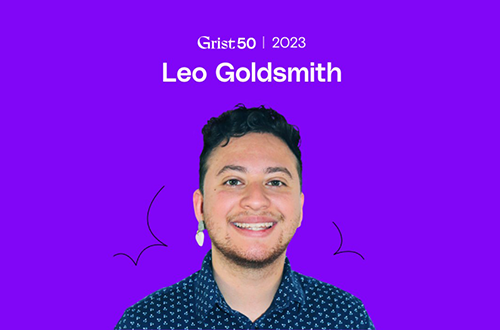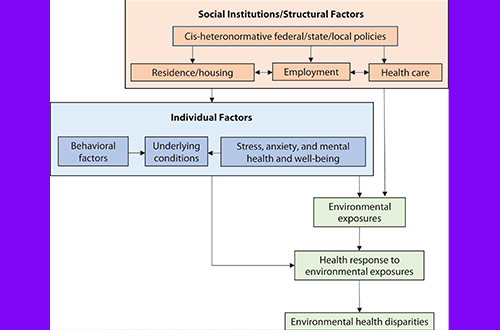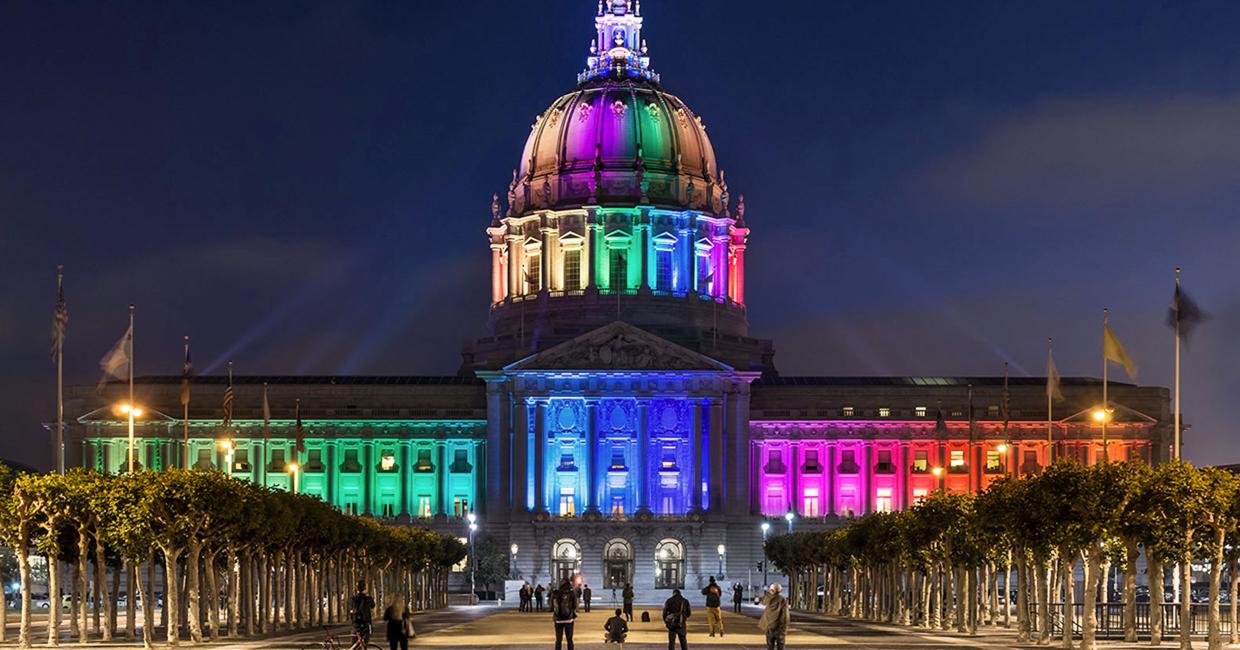June is globally recognized as Pride Month, a time of celebration, commemoration, and activism for the LGBTQIA+ community. It is also a great time to reflect on how the San Francisco Public Utilities Commission can further uplift and support the LGBTQIA+ community.
For a long time, the LGBTQIA+ community has been excluded from environmental justice conversations. However, that is starting to change. In 2023, the Fifth National Climate Assessment (NCA5) examines climate impacts and health outcomes in the LGBTQIA+ community for the first time in the report’s 23-year history.

This milestone is in large part due to the research and advocacy of Leo Goldsmith (he and they pronouns), a queer, transmasculine climate scientist. Goldsmith’s previous research on natural disasters and disparate health outcomes on the LGBTQIA+ community are included in Chapter 15 of the report. The report outlines how climate change has disparate outcomes for LGBTQIA+ individuals, particularly for Queer and Transgender People of Color (QTPOC).
As a utility and an environmental steward, some of the intersections between our work and the LGBTQIA+ community include natural disasters and air pollution.
Natural Disasters
While climate disasters can upturn anyone’s life, they place an unequal burden on people of color, households with low incomes, and LGBTQIA+ people. In the face of climate disaster, Queer and Transgender People of Color are more likely to struggle with emergency preparedness and relocation due to higher rates of homelessness, housing insecurity, and poverty.
When climate disaster strikes, LGBTQIA+ people face unique challenges and heightened discrimination. The NCA5 explains that the predominance of faith-based organizations as first responders has led to LGBTQIA+ individuals feeling unsafe and ostracized due to religious biases. For example, transgender women and men reported being forced to shower and shelter in facilities that did not align with their gender identity during Hurricane Katrina and Hurricane Ida. Additionally, in the aftermath of natural disasters, gay couples experienced increased barriers to FEMA aid because of heteronormative laws.

All in all, the NCA5 contends that disaster preparedness and response plans often exclude or fail to consider the needs of LGBTQIA+ individuals and families. Moving forward, the PUC strives to recognize these often-overlooked impacts on LGBTQIA+ community members.
Air Pollution
In addition to natural disasters, LGBTQIA+ people are particularly vulnerable to air pollution due to higher rates of housing instability, homelessness, and medical discrimination. One study examines air pollution impacts in the LGBTQIA+ community by looking at neighborhoods with high concentrations of same-sex couples. The study found that these neighborhoods had greater exposure to hazardous air pollutants and a 9.8-13.3% higher risk of respiratory illness.
While more research and advocacy are needed, it is clear that people of color and people with LGBTQIA+ identities experience compounding climate and health impacts. As the SFPUC and the City of San Francisco continue to make progress on our climate goals, this is a reminder that there is so much more work to be done to protect and support marginalized communities in the face of climate change.
This Pride Month and all year long, take time to learn about the intersectionality of LGBTQIA+ identities as it relates to environmental justice with your SFPUC colleagues:


